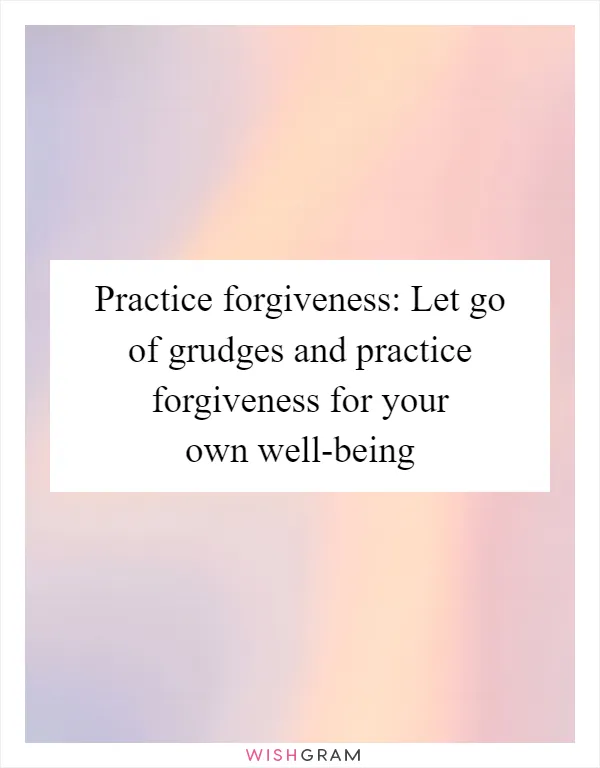Practice forgiveness: Let go of grudges and practice forgiveness for your own well-being
Practice forgiveness: Let go of grudges and practice forgiveness for your own well-being.
Holding onto grudges can weigh you down and negatively impact your overall well-being. It's natural to feel hurt or angry when someone wrongs you, but carrying that resentment for a long time can be detrimental to your mental and emotional health. That's why it's important to practice forgiveness.
Forgiveness is not about condoning or forgetting the hurtful actions of others. It's about freeing yourself from the burden of anger and resentment. When you hold onto grudges, you allow the negative emotions to consume you, affecting your relationships, happiness, and even physical health. By practicing forgiveness, you take back control of your own well-being.
Forgiving someone doesn't mean you have to reconcile or continue a relationship with them. It's a personal choice to let go of the negative emotions associated with the past. It's about releasing the power that the grudge holds over you and moving forward with your life.
Forgiveness is a process that takes time and effort. It's not always easy, especially when the hurt runs deep. However, it's important to remember that forgiveness is for your own benefit, not for the person who wronged you. By forgiving, you release yourself from the emotional baggage that can hold you back from experiencing joy and peace.
One way to start practicing forgiveness is by acknowledging your feelings and allowing yourself to grieve the pain caused by the situation. It's okay to feel angry, hurt, or betrayed. Give yourself permission to experience these emotions, but also recognize that holding onto them for too long can be harmful.
Next, try to understand the perspective of the person who hurt you. This doesn't mean justifying their actions, but rather gaining insight into their motivations or circumstances. Sometimes, understanding their point of view can help you find empathy and compassion, making forgiveness a little easier.
Another helpful step is to focus on self-care and self-compassion. Treat yourself with kindness and understanding as you navigate the process of forgiveness. Engage in activities that bring you joy, spend time with loved ones, and practice self-reflection. Remember that forgiveness is a gift you give yourself, and you deserve to be at peace.
Lastly, it's important to remember that forgiveness is not a one-time event. It's an ongoing practice that may require revisiting and reinforcing. Some days, you may find it easier to forgive, while other days it may be more challenging
